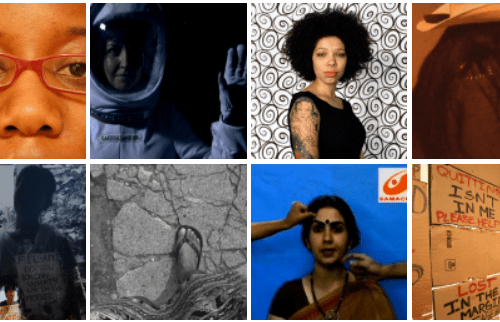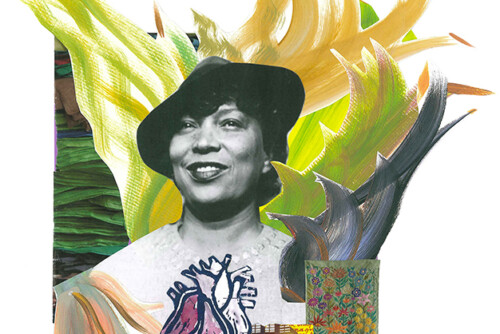Faith in self-interest is supported by a belief that thinking about what might benefit others—that is, thinking beyond self-interest—is presumptuous, controlling—the stuff of, to use the most consistently offered example, totalitarian communist regimes. But being thoughtful, caring, sharing—these are acts not of control or presumption but of openness, generosity, flexibility. Again, here, feminisms have much to offer. Feminisms, I mean, that would not support centralized or hierarchical power of the type of a capital-“C” Communist Party or government, but that are informed by circular, horizontal notions like bell hooks’s theories of moving from margins to center—another frame, offered by another feminist writer who developed a piece of what is now called “intersectionality”: margins to center, not linear, not progressive, not bottom to top, not hierarchical, but circular, multidirectional.
Before it was layered with all kinds of damage by Milton Friedman 1, Adam Smith’s notion of the “invisible hand” of the market referred mostly to the idea that actions by an individual within an economy can lead to consequences that that individual could not have anticipated or intended. 2 Not that I’m an Adam Smith fan, but I wonder about looking at that idea as having more to do with relationship than individualism—not only the relationships between individual humans within an economy, but also relationships between human actors and the natural resources they use or steward or leave alone, between various species—relationships of all kinds. This fact of unintended consequence could be used not to justify narrow self-interest, but to encourage economic and other systems rooted in a sense of inescapable interdependence.
What if our hands are all engaged in caregiving, in stewarding shared resources? It’s not that any one of us has an ultimate solution to what’s best for each and all of us, but that we get our hands dirty together, collaborating, offering, receiving, connecting, experimenting to see the impacts of various actions and choosing—together—the ones that create the least harm and the most widespread benefit.
Holistic feminisms have a lot to offer in this moment, challenging the very notion of subject/other, of splitting, that underlies all violences; questioning the very possibility that a person or a culture could ever separate self-interested desire from relationship or external impact or a ubiquitous and inescapable, if commonly denied, commons of experience and resources and all.
We build a structure—a dome, say—with the resources we have access to. Those among us who know things about scaffolding and engineering share that knowledge with those who have no clue where the supporting pipes need to go. Something like wind, say, unmoors the dome from where we’ve placed it, cracks its beams, tears its fabric, and now those who are good at improvising with laughter in moments like this help those who get stressed by things like wind whipping loose well-laid plans to relax into collaboratively finding a way to rebuild or repair or build something new if there are too many tears in that structure’s fabric or it turns out it’s simply not the kind of structure best suited to this land, or this group of people, or this moment. And meanwhile flowers of incredible variety are just growing, wild.



